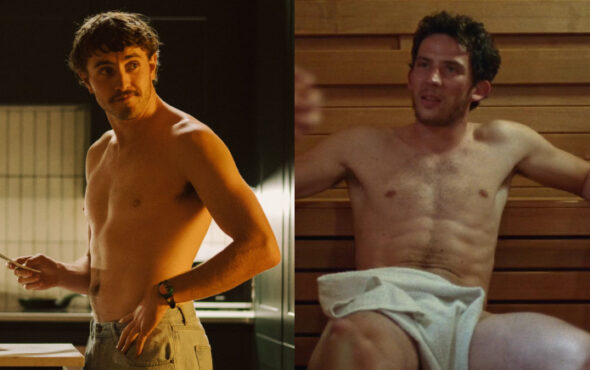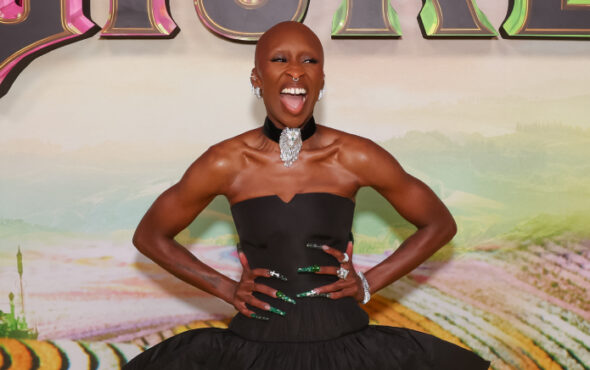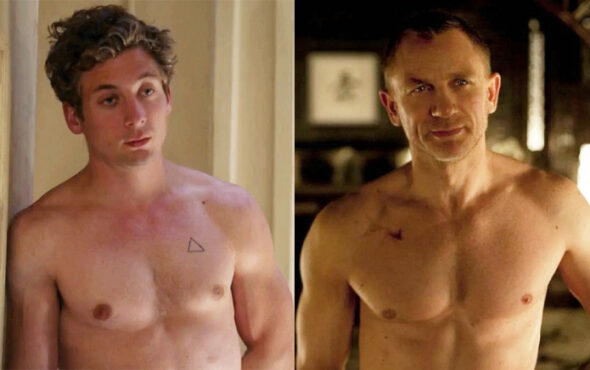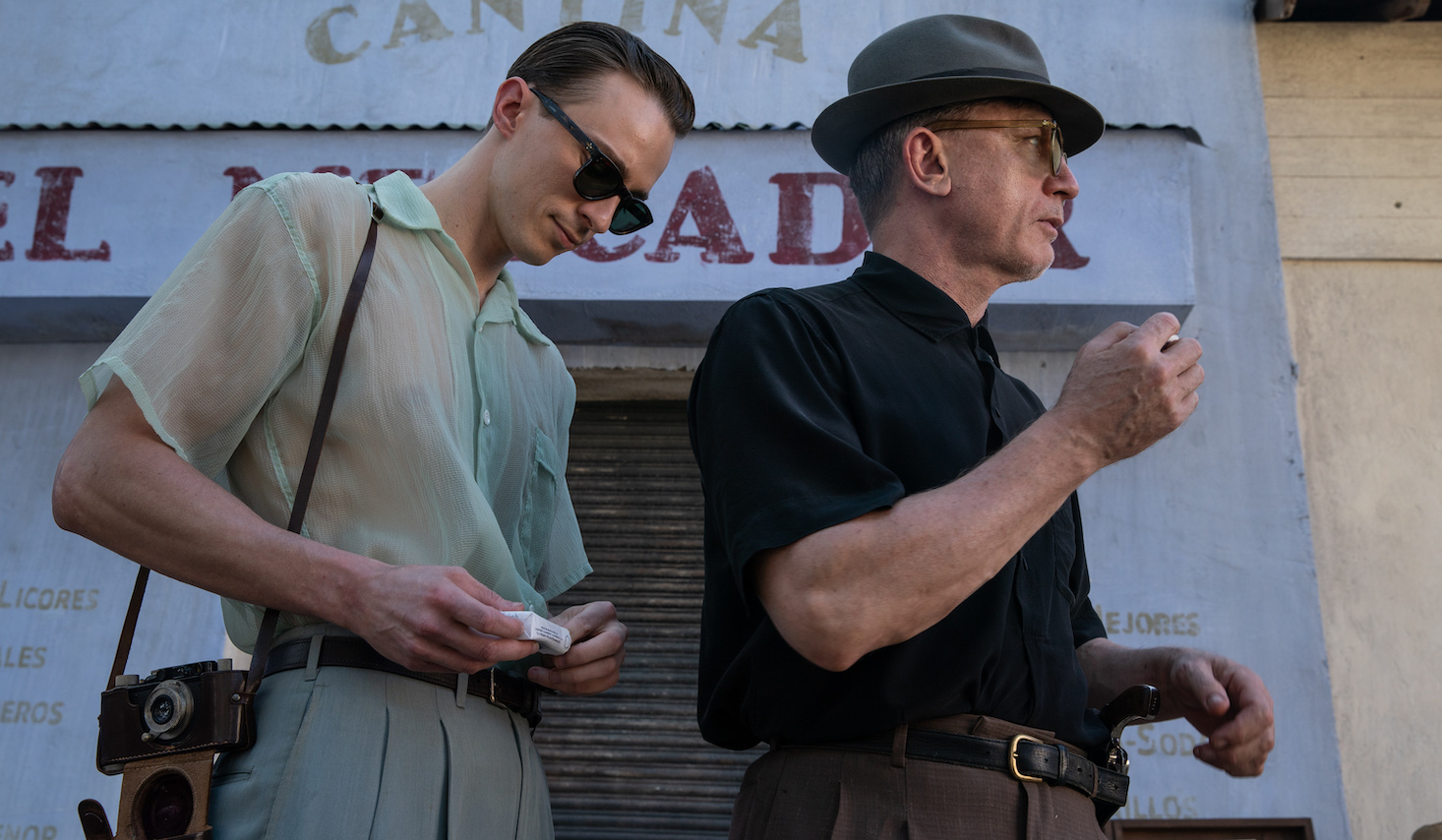
To Luca Guadaganino, the Italian filmmaker and Hollywood’s guiding light on sensual cinema, nothing is ever as it seems. In a cinema landscape starved of eroticism, Guadaganino’s nuanced, granular approach to sex has been a balm. The world of Guadagnino contains invigorating contradictions: cannibalism is romantic, tennis is more than a sport, and, of course, a peach is not just a peach. This playful blurring of what constitutes sex throughout his career makes the (literally) naked intimacy of his newest film, Queer, all the more powerful. It feels like the culmination of something the director has been working towards for years.
What makes Queer so affecting is that its source material, the William S. Burroughs novella, is anything but. Burroughs’ lead, Lee, a veteran in 1950s Mexico City who subsists on a diet of double tequilas and twinks, is a pitiable figure. He’s unpleasant to be around and decrepit in appearance, yearning pathetically for the attention of anyone around: “An addict has little regard for his image,” wrote Burroughs. But when we meet Guadagnino’s version of Lee, superbly played by Daniel Craig, he is a far cry from tragic; cutting a sharp figure in his white linen suit, one hand in his pocket, Panama hat doffed to passers-by, he is something of an elegant raconteur.
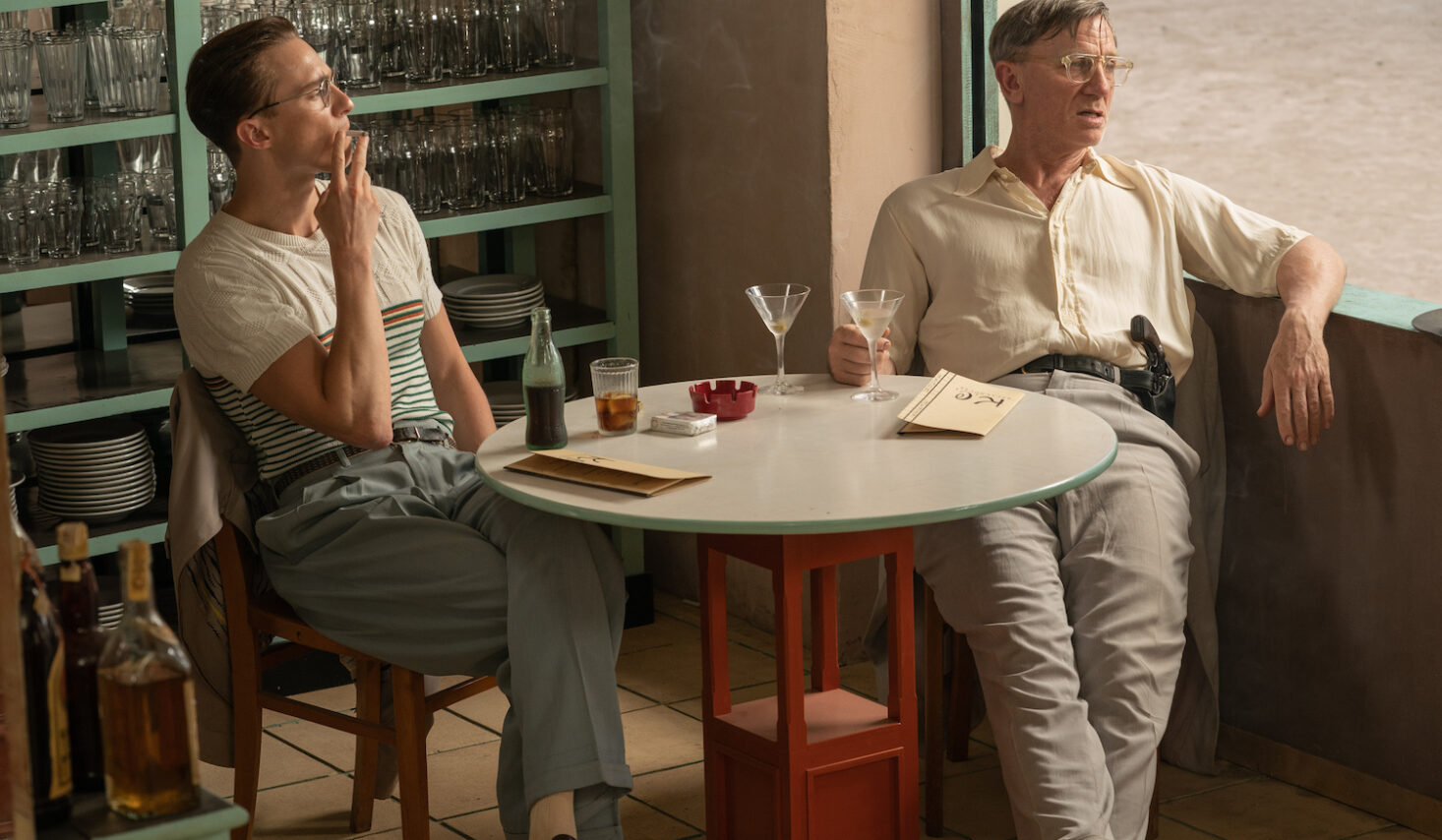
The novella is semi-autobiographical and semi-complete, written in Mexico when Burroughs fled the USA after being caught in possession of drugs and firearms, and you get the sense that the author, so close to the text, has given up on Lee. Guadagnino, on the other hand, has very much not. Craig’s Lee is a man vibrating with squandered potential, and Guadagnino and screenwriter Justin Kuritzkes give him considerable grace, sketching him with more light and shade than Burroughs did. Lee here has frittered his life away on years of military service and a crippling heroin addiction. He spends his days waxing lyrical in bars to a coterie of drinking buddies, performing a more refined form of masculinity than his literary counterpart.
Then Eugene Allerton enters Lee’s life. Guadagnino has him enter in slow motion, foregrounded by a cockfight and soundtracked to Nirvana’s “Come as You Are”; it’s an introduction that takes your breath away. In Burroughs’ novella, Allerton could be indistinguishable from any of Lee’s previous pick-ups, but brought to life by Drew Starkey, he is one of Guadagnino’s greatest figures of attraction; maybe the definitive. Where Lee in the novella is lecherous and driven by heroin-induced libido, Craig’s Lee is genuinely besotted and magnetised by Allerton. He becomes a lovesick young man in that moment, and though we never quite understand what makes Allerton tick, what makes him reciprocate Lee’s attraction, it almost doesn’t matter. What distinguishes Allerton and Lee’s relationship from previous Guadagnino trysts is how willingly the filmmaker, after so long, embraces carnality.
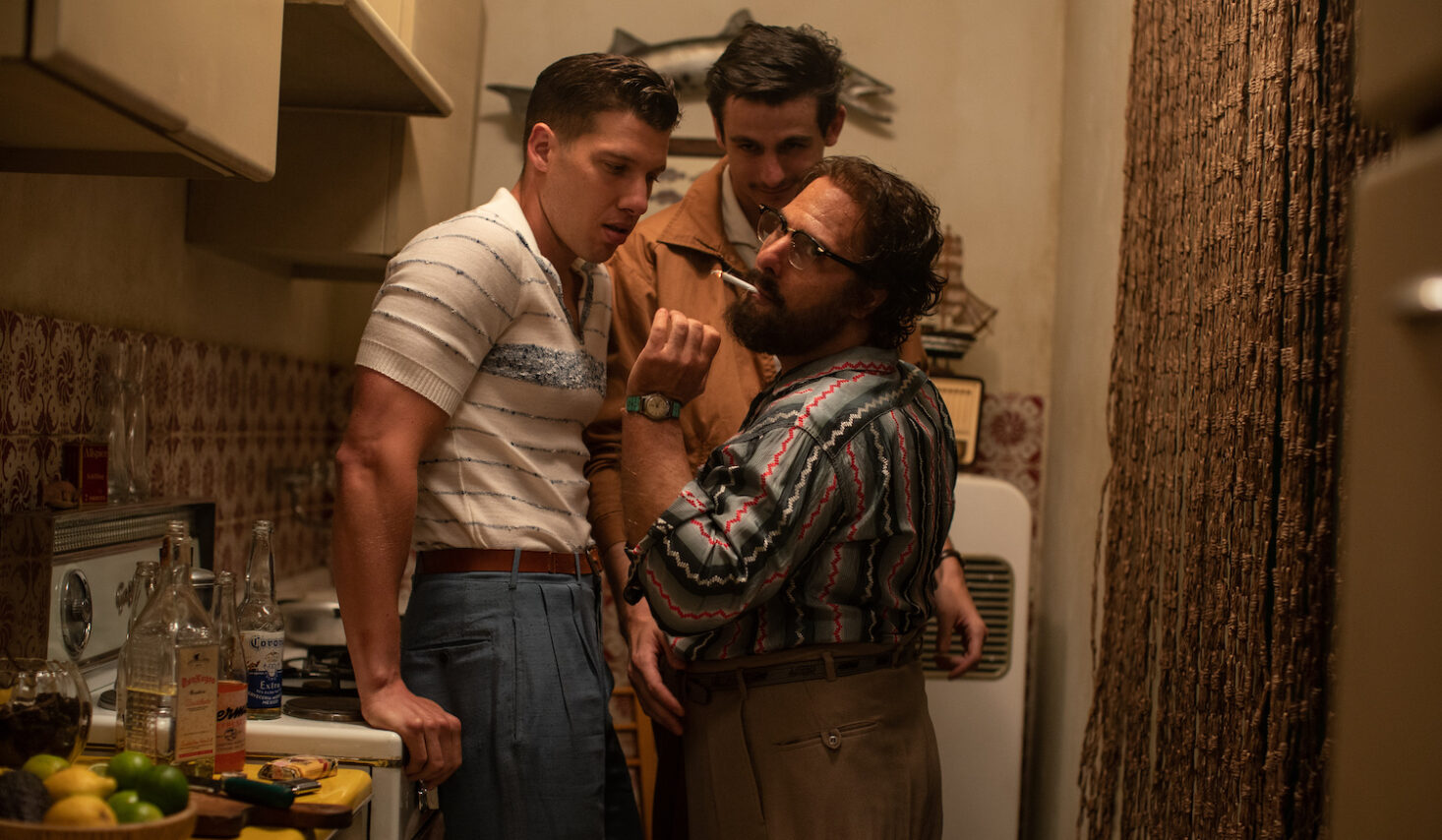
The sex in Queer comes thick and fast; they are, as Guadagnino put it, “numerous and quite scandalous”. Much has already been made of the nudity and the sweaty, transgressive kick of seeing men fucking; witnessing gay sex handled this authentically and erotically feels like a breakthrough. It is, in some ways, Guadagnino’s horniest film, but in true Luca Guadagnino form, it is a precise, considered horniness. The sex in Queer – Lee’s pursuit and domination of Allerton – feels like the release of years of tension in the director’s filmmaking. When Allerton, reclined on a bed, allows Lee to go down on him, Guadagnino splices the scene with shots of the Mexico City nightscape through every window in the apartment. It playfully recalls Call Me by Your Name’s infamous pan out of the window from Elio and Oliver when they finally fuck. Guadagnino made this decision because, in his words, bearing witness to that scene would have been an “unkind intrusion”; in Queer, Guadagnino’s camera is empathetic and necessary. For once, he allows us to stay in the room.
Lee’s euphoria, his unabashed horniness for Allerton, is the heart of Queer; the sex is its lungs. Lee is a soul filled with self-loathing, hollowed out by a lifetime of repression, and with Allerton, he begins to slowly colour in the blanks. It’s a testament to Craig’s performance that Lee feels quite so achingly real, an intensely troubled man isolated from himself and others by his queerness. Finding pleasure in Allerton is the light at the end of the tunnel and for Guadagnino, who has always been choosy over whether to consummate his characters’ relationships, it is a startling change of pace.
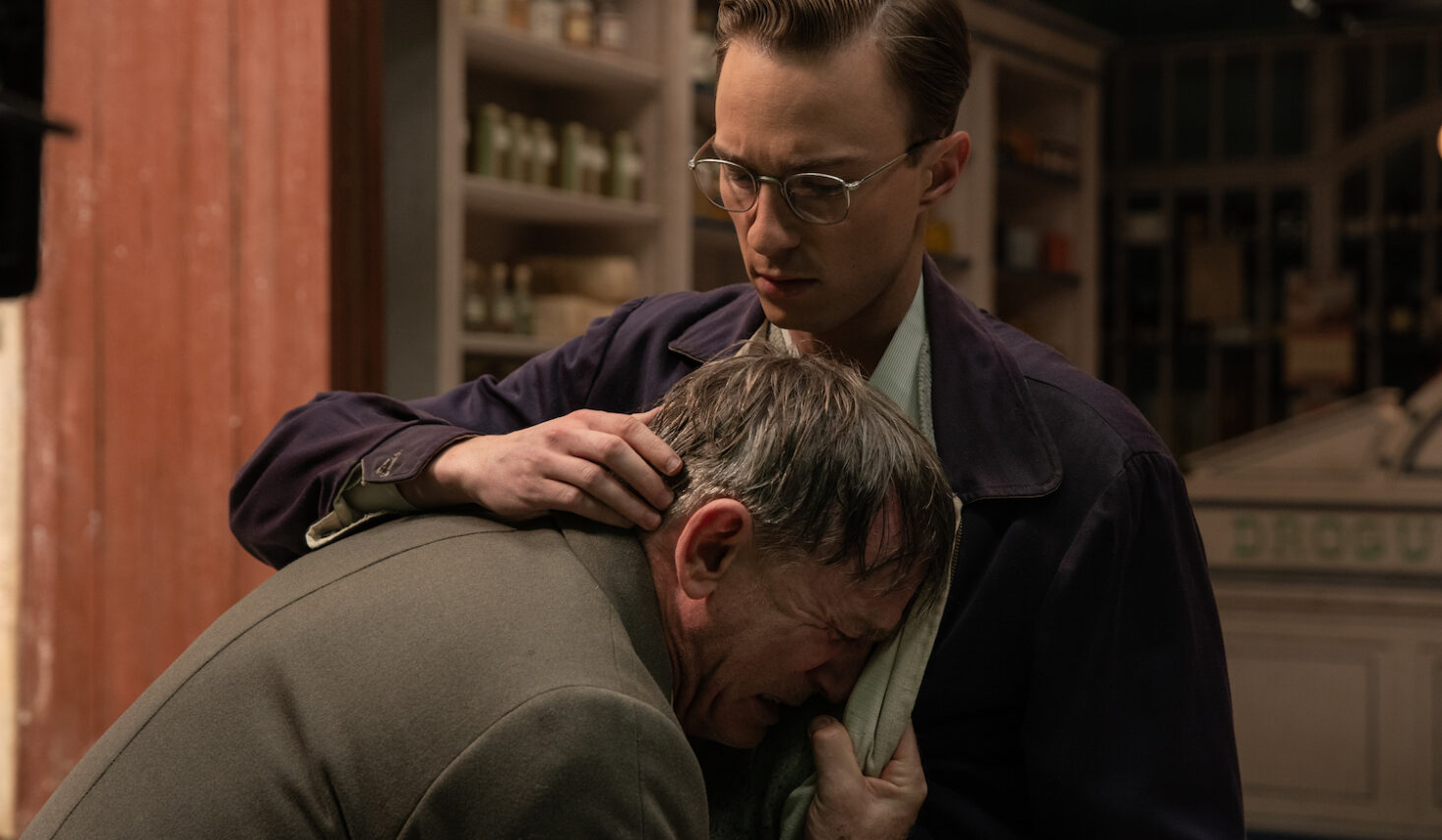
Earlier this year, in Guadagnino’s kinetic, uber-hot tennis drama, he took a very different approach. “The tennis is the sex,” said star Josh O’Connor. You’d struggle to find anyone who disagrees. The love triangle at its core – consisting of O’Connor, Mike Faist, and Zendaya – thrashed it out on the court instead of the bedroom. Guadagnino’s constant blueballing of the audience, teasing and never delivering in the conventional sense, was Challengers’ real grand slam. Frustrating as it was, there was no world in which Challengers could be explicit.
It was the same for Bones and All, Guadagnino’s 2022 romance about two cannibals who fall in love. Sex was never shown and cannibalism took its place; in Bones and All, resisting and eventually consuming a loved one was the greatest act of intimacy. Again, Guadagnino lensed his characters’ physical attraction through something other than explicit sex. Even in his 2009 film I Am Love, the sex scenes are shown but mostly in tasteful close-up – lips pressed against skin, a mouth open in pleasure, a hand gripping a scalp. Sex becomes a jigsaw to put together.
This all makes Queer’s sensual, complete portrait of lust hit like a wave. Guadagnino has always been a master of portraying love, capable of negotiating the balance between sex and romance. By finally portraying gay sex in Queer, so generously and so fondly, he is giving the act layers upon layers of meaning. It is the height of a career dedicated to portraying sex as erotically and authentically as possible. As Lee throws himself body and soul into his lust for Allerton, so, too, does Luca Guadagnino.
